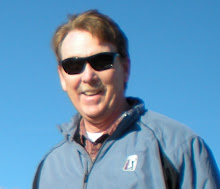I cannot believe my Romanian experience is coming to an end. My project here has been a case study in social networking and in "doing what you were put on this earth to do" (personal mission -> work impact).
 |
| Speaking at Social Enterprise conference |
I was not finding many takers in my offer to provide free strategic planning. The response "yes, that's a great offer" never got converted into action (wouldn't return my emails and phone calls, missed appointments, no-show a class presentation, contact me about events after they occurred, etc.). I kept offering to help, kept working on my needs assessment, and kept meeting people. I concluded that the "outsider fatigue" meant that I needed to have my new Romanian friends do the talking for me, so I invited NGO leaders to talk in class. I was setting up a NGO Resource workshop in which NGO leaders would tell other NGO leaders what works for them. Building social capital like this is a stretch for many Romanian NGOs, who tend to look at one another like one dog with a bone looks at his peers.
 |
| Romanian Social Enterprise Conference |
I finally got an invitation to present at a high level social entrepreneurship conference at the US Embassy in Bucharest with leading Romanian NGOs that have in the past received USAID funding. The same week a NGO leader told me of an upcoming conference in my own town, Cluj, that involves over 200 Romanian NGOs. The format is for NGO leaders to tell other NGO leaders what works for them. Since there is power in collaboration, I dropped my NGO workshop idea and pursued helping them with their NGO conference idea.
I went on "full court press" to meet leaders at the organizing NGO (began as an informational interview, but I ended with a trial run of my Bucharest presentation) and to get them to invite me to speak at their big NGO conference. Which they did, but with the condition that I have Romanian co-presenters to give a case study of my main point. So a couple of phone calls and a day later, I had two really effective Romanian NGO friends lined up to co-present (networking pays off).
So now, in a two month period, I have four presentations at major conferences (two down, two to go) where I talk about one really good idea that NGOs here can improve their services. I illustrate that good idea with Romanian NGOs that are doing it, and US NGOs that aren't. I don't want to criticize my Romanian friends, but I want the audience to learn how to critically analyze NGO mission and activities. So in criticizing foreigners, I'm hoping they can transfer that skill to critically analyzing their own NGO in the privacy of their own office.
 |
| from L to R: me; Hon. George Teseleauna, Romanian Consul; Prof. Antonio Panico, Rector. LUMSA Univ.; Prof. Riccardo Rossario, LUMSA Univ. |
So "what am I put here to do?" I want to nurture good ideas and the people who have them. By making connections between people and their ideas. By focusing on the good idea, clearing it from all the organizational clutter that distracts. By showing the impact of the good idea and giving it legs to stand on.
Yeah, that’s what I’m all about.
 | |
| Erica Lock with Mark Gitenstein, US Ambassador to Romania |
 |
| Speaking at the LUMSA International Social Services conference |
 |
| Prof. Antonio Panico, Rector, LUMSA University |






No comments:
Post a Comment